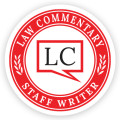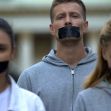The U.S. Military Academy at West Point is facing a federal lawsuit from one of its professors, who claims the school has imposed policies that infringe on the First Amendment right of free speech by curbing academic freedom and classroom discussion.
Tim Bakken, a civilian law professor in West Point’s Department of Law and Philosophy, filed the case Monday in Manhattan federal court. The lawsuit names the academy and its top leaders as defendants and seeks class action status for all civilian faculty members, estimated at more than 100. Bakken is also requesting damages, legal fees, and a court order deeming the policy in violation of the Constitution.
According to the complaint, West Point began scrutinizing faculty speech after a January executive order from President Donald Trump directed a review of leadership, curriculum, and instructors at U.S. service academies. On February 13, the academy issued the “Academic Engagement Policy,” requiring instructors to obtain approval before engaging in outside activities that use their West Point affiliation. Covered activities include publishing articles, giving conference presentations, participating in media interviews, and posting on blogs and social media. The lawsuit argues that the policy amounts to a prior restraint and a licensing regime on external speaking and writing, and that it functions as a content-based restriction because department heads review the substance of proposed work before granting approval.
In the months that followed, the filing states, the academy withdrew books from its library, removed words and phrases from syllabi, and eliminated certain courses and majors. More recently, the academy deleted the “Publications” tab from faculty webpages, which had listed books, articles, and scholarship entries, and instructors were directed not to express personal opinions on course material in class.
Bakken argued that the restrictions are “stifling and disruptive to the educational process,” preventing him from explaining to students why particular judicial opinions may be persuasive. He also noted he has a publishing contract for a book that criticizes some aspects of West Point and does not want to submit it for prior approval out of concern that the school would block it.
The filing also recounted a prior dispute between Bakken and academy leadership. In 2011, he reported what he believed was misconduct by senior officers, alleging that retired military personnel were being hired into faculty positions over more qualified civilian applicants and were receiving higher pay. Soon after, his working conditions were changed, and he filed a complaint with the U.S. Merit Systems Protection Board. Following a three-day trial in 2012, the Board ruled in his favor, finding he was a whistleblower and ordering West Point to restore his prior employment conditions while awarding him costs and attorney’s fees.
The complaint also emphasized Bakken’s career as the longest-serving law professor in USMA’s history, stating that during his time at West Point, he has authored books, articles, and essays, and has lectured at national conferences and international engagements. His writings have included law review and social science articles. He has also appeared widely in the media and public forums.






